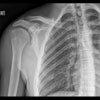
LONDON (Reuters), Feb 8 - Europe's ageing population is leading to an increase in cancer with 300,000 new cases diagnosed each year, researchers said on Wednesday.
An estimated 3.2 million people in Europe were diagnosed with the disease in 2006, compared to 2.9 million two years earlier, and 1.7 million died from the illness.
Lung cancer, most of which is caused by smoking, is the biggest killer with about 334,800 deaths, followed by colorectal, breast, and stomach cancer.
"Cancer remains an important public health problem in Europe and the ageing of the European population will cause these numbers to continue to increase, even if age-specific rates of cancer remain constant," said Professor Peter Boyle, the director of the International Agency for Research on Cancer (IARC) in Lyon, France.
The population of the 25 European Union countries is expected to remain constant at about 500 million. But between the year 2000 and 2015 there will be a 22% increase in the number of people over 65 and a 50% rise in those over 80.
Cancer occurs more frequently in older people. Longer exposure to carcinogens, radiation, and tobacco increases the susceptibility of developing the illness.
"The longer you are exposed in general terms, the higher your risk of developing cancer," said Boyle.
In a report published in the journal Annals of Oncology, Boyle warned more needs to be done particularly in Central and Eastern Europe to curb the increase in leading cancers.
"I think the biggest disaster is the number of people who die from cancers related to cigarette smoking," Boyle added in an interview.
He estimated that if people didn't smoke, cancer deaths in Europe could be cut by between a third and 40%.
"Tobacco control has got to be number one priority if we want to be serious about deaths from cancer. It is by far the biggest thing we could do," Boyle said.
Colorectal cancer is the second-leading cause of cancer deaths in European men and women but organized screening programs can be effective in diagnosing the illness, according to Boyle.
Mammograms have increased the detection of breast cancer, the most commonly diagnosed cancer overall, but deaths rose from 130,000 in 2004 to 131,900 in 2006.
"Tobacco control and effective population-based screening with good-quality control guidelines in place would reduce the cancer burden dramatically," said Boyle.
By Patricia Reaney
Last Updated: 2007-02-07 12:00:24 -0400 (Reuters Health)
Related Reading
Study: PET posts double-digit gains in Western Europe, January 22, 2007
Copyright © 2007 Reuters Limited. All rights reserved. Republication or redistribution of Reuters content, including by framing or similar means, is expressly prohibited without the prior written consent of Reuters. Reuters shall not be liable for any errors or delays in the content, or for any actions taken in reliance thereon. Reuters and the Reuters sphere logo are registered trademarks and trademarks of the Reuters group of companies around the world.

















